The fund is raised through a variety of sources mainly from private donations, NGOs, madrassas and business spread throughout South Asia, West Asia and Europe.
The annual military operations budget of terror outfit Lashkar-e-Taiba (LeT) is a whopping US$ 5.2 million, according to a secret US document which gives details about the outfit's fund raising activities, some of which comes through Jamaat-ud-Dawah's charitable networks.
The information is contained in a non-paper prepared by the American intelligence community, and shared with Pakistan in August 2009 at the direction of secretary of state Hillary Clinton and gives a deep insight into the fund raising, financing and various outfits of LeT.
The document says that Hafiz Saeed continues to lead both the LeT and its front organisation Jamaat-ud-Dawah and that some of the funds collected in the name of charitable activities have also been used for planning terror attacks.
The fund is raised through a variety of sources mainly from private donations, NGOs, madrassas and business spread throughout South Asia, the West Asia and Europe.
The non-paper that puts LeT's annual budget at more than Rs23 crore, was used by Clinton to buttress her point and convey to Pakistan about her decision to oppose delisting of Jamaat-ud-Dawa and its leader Hafiz Saeed from the al-Qaeda and Taliban Sanctions Committee of the UN Security Council.
The non-paper says that the US intelligence community assesses that Hafiz Muhamad Saeed is leader of Lashkar-e-Taiba and Zaki-ur-Rehman Lakhvi is LeT's operations commander and they continue to run the organisation despite being detained for their role in the Mumbai attacks.
"We also judge that they have planned, directed, and executed LeT attacks throughout South Asia and likely have used some funds collected in the name of JuD's charitable activities to support multiple LT terrorist operations, including the November Mumbai attacks," it said.
"The community assesses that Saeed continues to lead both organisations. However, the community is unable to assess to what extent senior JuD leaders such as Saeed are involved in specific terrorist operations or the level of detail to which they are knowledgeable about specific past and pending attacks," it said.
It says as of mid-July, Lakhvi was responsible for the LeT's military operations budget of Pakistani Rupees 365 million that is approximately US$ 5.2 million per year.
He reportedly used the money to purchase all materials required for LeT operations other than weapons and ammunition, according to a source claiming direct and ongoing access to LeT leaders, the non-paper said.
"The community assesses that JuD fundraising has relied heavily on private donations, non-governmental organisations (NGOs), madrassas, and businesses spread throughout South Asia, the Middle East, and Europe.
"Some of JuD's budget, using funds raised both from witting donors and by fraud, is dedicated to social services or humanitarian relief projects, while some is used to finance LeT operations," it said.
"In December 2005, an official of Idara Khidmat-e- Khalq forwarded JuD donation receipts to a probable LT front company in Saudi Arabia where an LT finance official may have been closely associated with the general manager possibly acting as a front for moving LeT funds, according to intelligence reporting," the documents says.
LeT's financier Makki in 2002 frequently visited the West Asian and viewed it as a main source of funding.
It said to demonstrate results to donors, JuD would finance the cost of building a new school or upgrading facilities at a madrassa, but would inflate the cost to siphon money to LeT.
Noting that there is not sufficient intelligence to determine if or how the Mumbai attacks have affected donations to JuD, it said some donors may be dissuaded from supporting JuD if they become aware that their funds may be used for additional terrorist attacks, whereas other donors may support the attacks.
"As public and government scrutiny increases in the wake of the attacks and subsequent designation of JuD as an alias of LT by the UN, we assess that JuD will rely more on covert fundraising efforts," it noted.
According to the non-paper, the US intelligence community assesses that LeT, a Pakistan-based terrorist group, uses the JuD name as an alias.
JuD is a religious, educational, and humanitarian organisation that the community assesses provides cover and protection for LeT's militant activities in Pakistan, it said.
"LeT and JuD share many senior leaders; LeT falls under the authority of JuD leader Hafiz Muhammad Saeed; and JuD supports and facilitates LeT's violent activities.
"LT and JuD stem from the same original organization Markaz-ud-Dawawal-Irshad (MDI) that was founded around 1986 and for which LT served as its armed, militant wing," it said.
MDI, it said, was renamed JuD in December 2001 and in January 2002 the LeT was declared a terrorist organization prompting MDI to publicly divest itself of the group.
"LeT transferred most of its assets and personnel under the newly formed JuD," it said.
Some of the money to finance LeT operations is obtained by the JuD by fraudulently redirecting donations intended for humanitarian work.
"JuD and LeT have branch offices with different names and have adopted a number of aliases as a denial and deception tactic," it said.
Islamabad "watchlisted" JuD in 2003, "but the government has resisted pressure to take action against the group, particularly after JuD's popular earthquake relief efforts in 2005 and 2006 in response to the October 2005 earthquake in Pakistan," it said.
According to the non-paper, LeT has used JuD facilities as a public front for its activities and, shared offices, phone numbers, leaders, and bank accounts.
"LeT members identified themselves as JuD when in Pakistan and as LeT when in Kashmir. LT/JuD purportedly raises funds for the Palestinian people in response to Israel's attacks on Gaza.
"The Community judges that as of January, JuD also may be operating under the alias Tehreek-e-Hurmat-e-Rasool.
LeT's political affairs coordinator Khalid Waleed identified himself in late December as the chief organiser for a conference for Tehreek-e-Hurmat-e-Rasool, according to intelligence reporting," it said.
The document noted that on February 6, 2009, the JuD held a Kashmir Solidarity Conference at which JuD renamed itself Tehreek-e-Azadi-e-Kashmir (TAK).
"At JuD's first public protest since December, supporters used old JuD banners and chanted JuD slogans, but rallied under the name TAK to avoid arrest," the non-paper said.
The US intelligence community assesses that LeT and JuD, in an attempt to evade restrictions following UN sanctions, have established branch offices with different
names and adopted a number of aliases.
"One branch, Idara Khidmat-e-Khalq, is a publicly acknowledged charitable arm of JuD and has its own web page with photos of hospitals and ambulances. Other aliases include Paasbaan-e-Ahle-Hadith, Paasban-e-Kashmir, Al-Mansoorian, and Al-Nasaryeen.
"We assess that LeT and LeT-associated militants will continue to use aliases in order to circumvent restrictions on their movement and operations," said the non-paper, which was shared with Pakistan in August 2009.
![submenu-img]() Verantes Living Awarded as India’s No.1 Stainless Steel Modular Kitchen Brand
Verantes Living Awarded as India’s No.1 Stainless Steel Modular Kitchen Brand![submenu-img]() Narayana Murthy’s Infosys set to invest Rs 170000000 in this startup
Narayana Murthy’s Infosys set to invest Rs 170000000 in this startup![submenu-img]() 'Towards reducing pollution..': Delhi govt approves replacement, induction of electric vehicles in 'Gramin Sewa'
'Towards reducing pollution..': Delhi govt approves replacement, induction of electric vehicles in 'Gramin Sewa'![submenu-img]() Discover Stainless France, the Leading Supplier of Cobalt Chrome
Discover Stainless France, the Leading Supplier of Cobalt Chrome![submenu-img]() Kritika Kamra says men should take responsibility for fighting sexism: 'There's a thin line between...'
Kritika Kamra says men should take responsibility for fighting sexism: 'There's a thin line between...'![submenu-img]() 'दीदी' को हिंदू त्योहारों से दिक्कत? West Bengal में मुहर्रम पर कॉरिडोर बनवाया, 112 फुट ऊंचे दुर्गा पूजा पंडाल का काम रुकवाया, जानें पूरा विवाद
'दीदी' को हिंदू त्योहारों से दिक्कत? West Bengal में मुहर्रम पर कॉरिडोर बनवाया, 112 फुट ऊंचे दुर्गा पूजा पंडाल का काम रुकवाया, जानें पूरा विवाद![submenu-img]() Israel Hezbollah War: हिजबुल्लाह चीफ दे रहा था टीवी पर धमकी, तभी इजरायली विमानों ने कर दी लेबनान में एयर स्ट्राइक
Israel Hezbollah War: हिजबुल्लाह चीफ दे रहा था टीवी पर धमकी, तभी इजरायली विमानों ने कर दी लेबनान में एयर स्ट्राइक![submenu-img]() कोलकाता रेप-मर्डर केस में जूनियर डॉक्टरों की हड़ताल खत्म, इस दिन से काम पर लौटने का किया फैसला
कोलकाता रेप-मर्डर केस में जूनियर डॉक्टरों की हड़ताल खत्म, इस दिन से काम पर लौटने का किया फैसला![submenu-img]() तिरुपति मंदिर के प्रसाद में मिलाई जानवर की चर्बी? सीएम चंद्रबाबू नायडू के दावे पर मचा बवाल, जानिए क्या कहती है लैब रिपोर्ट
तिरुपति मंदिर के प्रसाद में मिलाई जानवर की चर्बी? सीएम चंद्रबाबू नायडू के दावे पर मचा बवाल, जानिए क्या कहती है लैब रिपोर्ट![submenu-img]() New Corona Variant: तेजी से फैल रहा कोरोना का नया XEC वेरिएंट, 27 देशों में मिले मरीज, क्या फिर दिखेगा 2020 जैसा खौफनाक नजारा?
New Corona Variant: तेजी से फैल रहा कोरोना का नया XEC वेरिएंट, 27 देशों में मिले मरीज, क्या फिर दिखेगा 2020 जैसा खौफनाक नजारा?![submenu-img]() Ford to return to India after 2 years with reopening of....
Ford to return to India after 2 years with reopening of....![submenu-img]() Maruti Suzuki launches new Swift CNG, check price, mileage, other features
Maruti Suzuki launches new Swift CNG, check price, mileage, other features![submenu-img]() ‘30 LPA, 3BHK, no in-laws’: Woman earning Rs 1.32 lakh salary lists demands for future husband, netizens say...
‘30 LPA, 3BHK, no in-laws’: Woman earning Rs 1.32 lakh salary lists demands for future husband, netizens say...![submenu-img]() In a big EV push, Centre launches Rs 10900 crore PM E-Drive scheme to replace…
In a big EV push, Centre launches Rs 10900 crore PM E-Drive scheme to replace…![submenu-img]() World’s longest car has helipad, swimming pool, mini-golf course, can seat over…; it cost…
World’s longest car has helipad, swimming pool, mini-golf course, can seat over…; it cost…![submenu-img]() Meet IPS officer who has resigned after serving for 18 yrs due to...
Meet IPS officer who has resigned after serving for 18 yrs due to...![submenu-img]() Meet Indian man, who got hired whopping Rs 12000000 crore salary job, not from IIT, IIM he is...
Meet Indian man, who got hired whopping Rs 12000000 crore salary job, not from IIT, IIM he is...![submenu-img]() Meet woman who left medical career for UPSC exam , became IPS with AIR 165 then left job due to...
Meet woman who left medical career for UPSC exam , became IPS with AIR 165 then left job due to...![submenu-img]() Meet man, who left NDA due to depression, then cracked UPSC exam to become IAS officer, his AIR was...
Meet man, who left NDA due to depression, then cracked UPSC exam to become IAS officer, his AIR was...![submenu-img]() Meet youngest CEO of India, who created first app at 9, began his own company at 13, now he is…
Meet youngest CEO of India, who created first app at 9, began his own company at 13, now he is…![submenu-img]() Congress President Kharge Slams & Opposes 'One Nation, One Election' Proposal, Calls It Impractical
Congress President Kharge Slams & Opposes 'One Nation, One Election' Proposal, Calls It Impractical![submenu-img]() Why 'One Nation One Election' Is important? Ashwini Vaishnaw Explains After It Gets Cabinet Approval
Why 'One Nation One Election' Is important? Ashwini Vaishnaw Explains After It Gets Cabinet Approval![submenu-img]() Jammu Kashmir Assembly Election 2024 Phase 1 Highlights: What Happened In First phase In J&K Polls?
Jammu Kashmir Assembly Election 2024 Phase 1 Highlights: What Happened In First phase In J&K Polls?![submenu-img]() One Nation One Election: Centre Clears Proposal, Bill To Be Introduced In Winter Session | Modi 3.0
One Nation One Election: Centre Clears Proposal, Bill To Be Introduced In Winter Session | Modi 3.0![submenu-img]() Haryana Elections 2024: Is BJP Set To Lose In Haryana? Anti-Incumbency And Other Factors Analysed
Haryana Elections 2024: Is BJP Set To Lose In Haryana? Anti-Incumbency And Other Factors Analysed![submenu-img]() Verantes Living Awarded as India’s No.1 Stainless Steel Modular Kitchen Brand
Verantes Living Awarded as India’s No.1 Stainless Steel Modular Kitchen Brand![submenu-img]() Narayana Murthy’s Infosys set to invest Rs 170000000 in this startup
Narayana Murthy’s Infosys set to invest Rs 170000000 in this startup![submenu-img]() Discover Stainless France, the Leading Supplier of Cobalt Chrome
Discover Stainless France, the Leading Supplier of Cobalt Chrome![submenu-img]() ITR filing: Haven’t received your income tax refund yet? Here’s what you should do
ITR filing: Haven’t received your income tax refund yet? Here’s what you should do![submenu-img]() Meet ‘delivery boy’ who beats Mukesh Ambani in world’s billionaire list, his net worth is…
Meet ‘delivery boy’ who beats Mukesh Ambani in world’s billionaire list, his net worth is…![submenu-img]() In pics: Saiyami Kher conquers Ironman triathlon in Germany, swims, cycles, runs to complete endurance races
In pics: Saiyami Kher conquers Ironman triathlon in Germany, swims, cycles, runs to complete endurance races![submenu-img]() Meet IAS officer, who cracked in UPSC exam along with full-time job, her AIR was...
Meet IAS officer, who cracked in UPSC exam along with full-time job, her AIR was...![submenu-img]() In pics | India vs Bangladesh 1st Test, Day 1
In pics | India vs Bangladesh 1st Test, Day 1![submenu-img]() From Mechuka to Hayuliang village: Explore lesser-known destinations of Arunachal Pradesh
From Mechuka to Hayuliang village: Explore lesser-known destinations of Arunachal Pradesh![submenu-img]() From Simlipal National Park to Mahendragiri: Top 6 hidden gems to discover in Odisha
From Simlipal National Park to Mahendragiri: Top 6 hidden gems to discover in Odisha![submenu-img]() 'Towards reducing pollution..': Delhi govt approves replacement, induction of electric vehicles in 'Gramin Sewa'
'Towards reducing pollution..': Delhi govt approves replacement, induction of electric vehicles in 'Gramin Sewa'![submenu-img]() More trouble for ex-RG Kar principal Sandip Ghosh, Bengal medical body now...
More trouble for ex-RG Kar principal Sandip Ghosh, Bengal medical body now...![submenu-img]() Tirupati Laddu row: Lab report confirms prasada contains beef fat, fish oil
Tirupati Laddu row: Lab report confirms prasada contains beef fat, fish oil![submenu-img]() Delhi: Water supply to be shut down in capital for 12 hours tomorrow due to…; check list of affected areas
Delhi: Water supply to be shut down in capital for 12 hours tomorrow due to…; check list of affected areas![submenu-img]() FATF says India faces severe 'terrorist financing threats' from...
FATF says India faces severe 'terrorist financing threats' from...


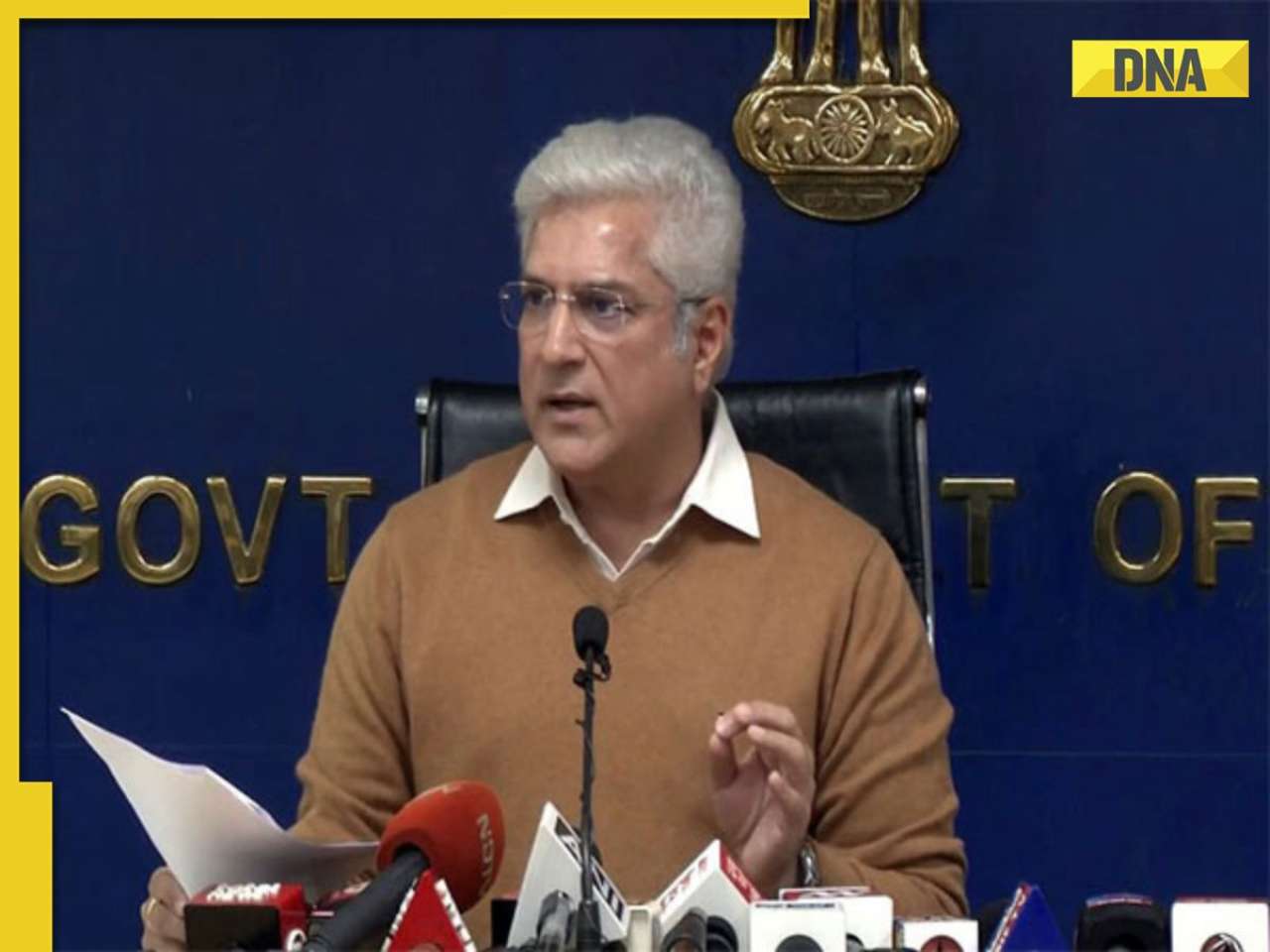






















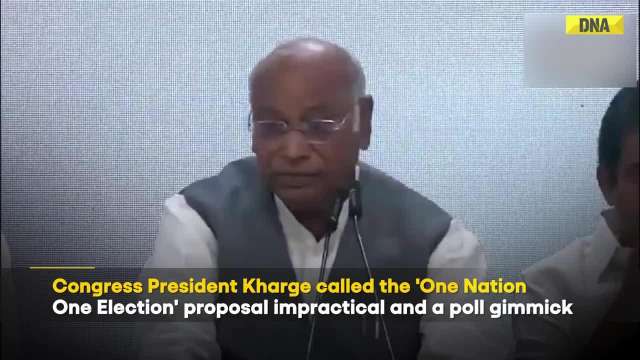
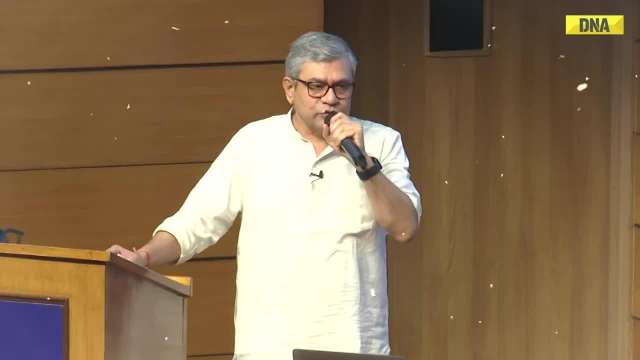
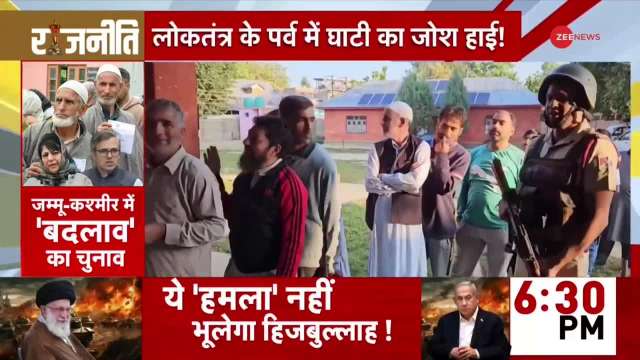
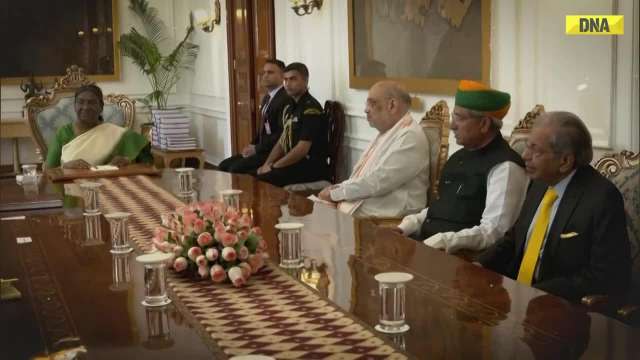











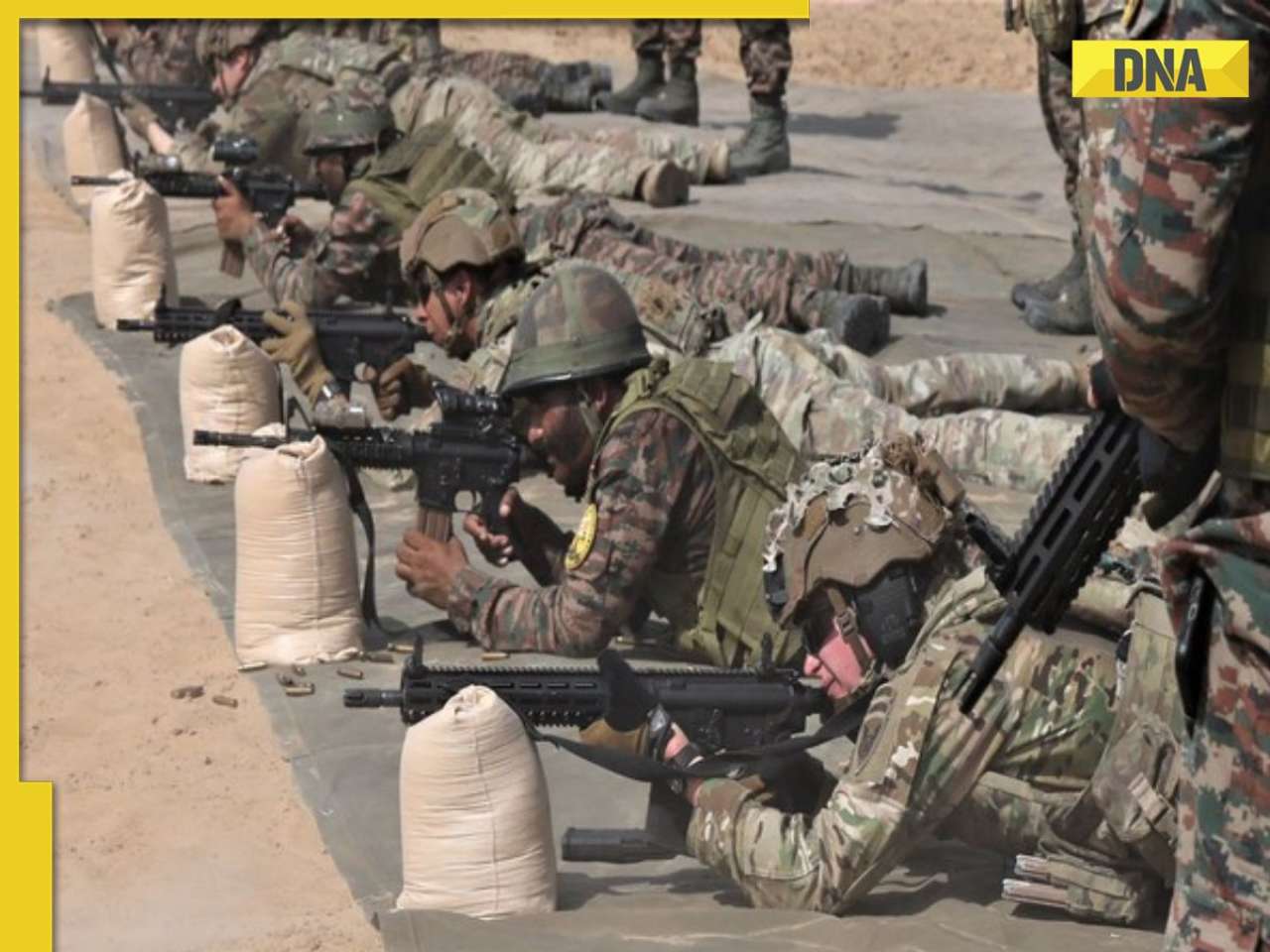


)
)
)
)
)
)
)
)
)
)
)
)
)
)





)
)
)
)
)
)